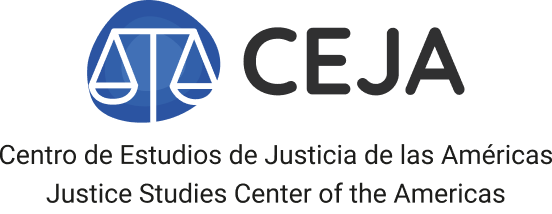
Download the publication here
With the financial support of Global Affairs Canada (GAC), we are pleased to announce the translation of the first section of the text “Comparative study on civil procedure reforms in Latin America.” The main purpose of this translation is to present a comparative vision of the civil justice reforms that have taken place in Latin America since the entry into force of the Honduran Civil Procedure Code in 2009 to our English-speaking audience. This includes the evaluation and description of the civil procedure reforms undertaken in Bolivia, Brazil, Colombia, Costa Rica, Ecuador, El Salvador, Honduras and Nicaragua. This is an effort to observe the phenomenon as a whole and arrive at a regional comparative perspective that allows us to engage in discussions around a fundamental question: Is there a Latin American civil justice model?
We based our efforts to generate comparative information on the structuring and design of the models adopted in the countries identified on various aspects: the implementation and entry into force of each reform, procedural models, procedural structures and their respective hearings, evidentiary and litigation aspects, alternative dispute resolution (ADR) mechanisms, collective processes and avenues that can be used to challenge decisions.
Each of these areas has its own axes or indicators of analysis, which have allowed us to generate comparative data that we believe is useful for exploring the regulatory deficiencies identified, outlining a shared work agenda and contributing constructive solutions for the review of these reforms and the promotion or discussion of those that are in process elsewhere in the region.
The main trends identified based on the areas analyzed include:
- Setting the issue of merit aside, the majority of the countries that initiated justice reform processes have taken a public policy approach. The seriousness and depth of the planning and measures adopted varied. We did not conduct assessments of unmet legal needs and focused on the treatment of certain elements instead of other equally valuable ones in order to arrive at a comprehensive perspective. All of the countries would have benefited from paying more attention to and focusing institutional capacity on the assimilation of, management of, monitoring of and adjustments to the change.
- None of the traditionally studied models -process as dispute resolution or process as policy implementation- have been consecrated in the codes analyzed, even as a general trend. A cumulative logic has dominated.
- In general terms, the reform process that Latin America has experienced continues to be rooted in a rigid and legalistic concept of law. This is expressed in the consecration of principles like the legality of procedural forms, the restricted nature of procedural regulations or the lack of case management and/or procedural business regulation in several countries.
- All of the regulations incorporate an oral hearing process as the form of discussion. Strictly speaking, it would qualify as mixed given that the pleadings and appeals are written. The reforms aspire to establish an oral civil justice system, at least legally. In fact, the principle of the use of oral procedures is one of the few principles of all of those identified that is expressly regulated in all of the codes (along with the principles of dispositive and public procedures). However, the analysis of the procedural structures and their respective hearings does not necessarily reach the conclusion that the aforementioned principle of the use of oral procedures has been adequately received in all of the reforms.
- The trial hearing does not seem to have the centrality that it deserves in the current regulations. Proof of this is the fact that it is referred to as the complementary, investigative or trial hearing, the fact that it does not have a unique form or lacks aspects that are related to the trial which may go against the goal of obtaining quality information.
- None of the reforms analyzed have regulated mechanisms similar to the Anglo Saxon concept of discovery. Understood as such, evidentiary discovery has not become commonplace in practice or in law in Latin American civil justice systems. Only Brazil and Colombia allow for and systematically organize optional mechanisms for the exchange or procurement of evidence prior to proceedings.
- All of the reforms undertaken in the region preserve as a general guideline the traditional criterion of onus probandi (the burden of proof), but only some allow dynamic burdens or rules of differentiation of the general criterion.
- All of the countries have established sound judgment as an evidence assessment system, though in general and vague terms. Only some codes include efforts to specify their scope and direction, and these are insufficient. Furthermore, no clear guidelines or standards to guide the mechanics of assessment of evidence or special differentiation for certain types of conflicts are observed, and all of the codes preserve legal evidence assessment guidelines. These include the regulation of testimonial disqualification or assigning evidentiary value ex ante.
- In regard to ADR, there is a marked regulatory dispersion that works against efforts to provide a comprehensive approach that structures the multiple mechanisms from and for the dispute. Furthermore, there is an absence of regulations that establish agencies or incentives or incorporate adequate coordination modes between proceedings and ADR (except in Brazil), which reaffirms the dominant focus on legal proceedings. Conciliation has expanded in all reform processes, but no restructuring of the various existing mechanisms is observed.
- The regulation of collective processes in Latin America is problematic. With few exceptions (for example, Brazil), we observe the absence of legal regulations or, where there are framework systems or approaches in specific areas, deficient treatment. In that sense, it is common to observe that certain elements specific to this sort of proceedings (for example, the identification of claimants) are regulated while other essential ones without which it is impossible to sustain the validity of the system, proceedings and collective dispute resolution are omitted.
- In regard to appeals, no significant changes are observed with regard to the form of organization and structuring of channels for appeal. The concern over optimizing the process has been reduced to the limitation of appealable decisions, the generalization of delayed impact or the incorporation of the provisional execution of appealed decisions, though this is uneven and involves objections of varying tenor. Except for that of Brazil, the procedure reforms introduced in the region have not incorporated systems of precedents.
